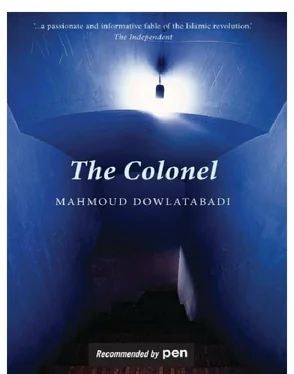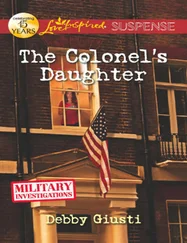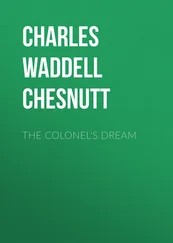No! I cannot believe that my Amir has lost his mind. No, it cannot be! But those crazy dreams, those terrifying nightmares of his…
The colonel was not altogether wrong since, even after Amir had had these horrible dreams and nightmares, he did not behave oddly but just sat on the edge of his bed smoking, wiping the sweat from his brow with an old handkerchief. He had even heard Amir saying to himself, “I can cope and I will try to cope, if these nightmares will just let me.” And, even more unequivocally: “I haven’t lost my wits, I swear I haven’t.” The colonel believed that his son could still think straight and that he was trying to be strong. All the while, Amir had kept working on a bust of Amir Kabir 6— the colonel had seen its outline through the dusty basement window. So how could he despair of his son?
It was I who introduced him to Amir Kabir and told him that he was a shining example to our nation. Wasn’t I right to do that? And why not? But… there are moments when I feel ashamed, even brow-beaten, for having introduced my sons to these free-spirited and patriotic figures, and I feel that I have in some way betrayed them. It’s just as well that those moments soon pass and don’t take root in my head, because I tell myself over and over again that I have done my duty to my sons. Sometimes I go further and pride myself that I have imbued them with all the progressive ideas of the last century. A young mind hungers for new ideas and, as a father, I had no right not to respond to that perfectly reasonable need. What else keeps a nation alive? So why should I blame myself? What else could I have done? Should I have lied to them? I admit, yes, that sometimes I held the truth back from them and that sometimes I inculcated things into them… But who can tell what they would have found out on their own? After all, nobody can pull the wool over the eyes of the young. No, I’ve got nothing to be ashamed of, and I shouldn’t allow myself to think that I’ve let my sons down in any way. Why should such an idea have ever entered my head? My sons, my sons, what have we come to that we have to regret having done the most reasonable thing one could have done?
“Papa, papa, my head is bursting!” How many times had the colonel heard this plaintive cry coming through the walls and windows of the basement, over and over again, as his son wept bitterly and held his head in his hands. Amir seemed drained after each nightmare, exhausted as if running a fever, and could not make sense of anything. He guessed that his son had got himself into such a state that he did not even want to think any more. Not that he could stop himself, the colonel suspected. Amir had not lost his mind and Farzaneh was wrong if she thought that he had. the colonel reckoned that she should not muck him about the way she did and that she certainly should not drag up what his brothers and sister said about him, which only set him off again. He was certain, or at least he thought he was certain that, apart from those brief moments of desperation, Amir had dispelled all thoughts of his brothers and of his sister Parvaneh, perhaps because he had lost the courage to think about the tragedy or, worse, that he had been infected by doubt, by the leprosy of doubt and resignation. the colonel was aware that once someone has fallen into a deep slough of despond, it is virtually impossible to get out of it. You can twist and turn all you want, but in the end, you succumb to the giddying confusion of it all and throw in the towel.
“I am the answer to a riddle that I have set myself, to which the only answer would seem to be death. I am having doubts not only about where I belong in my own country, but even about my own humanity. Who am I, what am I, where do I belong?”
The colonel must have heard Amir say all this. How often had he felt the same thing himself, just what one should never allow oneself to say? He could read his son’s words on Farzaneh’s face, after all. Farzaneh bit her lip and wept in silence. She had lost weight, but she still reminded the colonel of her mother, with her light auburn hair, her greenish eyes, her smooth forehead, her elegant lips and her delicate little chin. But now her face bore the marks of confusion and failure. Reflected in it, the colonel could see the state that Amir was in; the state that they were all in.
“You’re lost to us all, my sister, and I, Amir, have lost my faith.”
He knew, he knew perfectly well, that his son was changing, but he absolutely refused to see this as him losing his mind. He could read Amir’s metamorphosis from his squinting eyes, which mirrored his descent into paralysis and lifelessness. The only signs of life left in him were of fear, shame, despair and failure. Now and then, his hopes were raised by seeing the outline of his son through the frosted glass of the little door, as he worked on the bust of Amir Kabir. That must do him some good. But he regretted that he had not said anything to Amir about all the comings and goings in the house of Khezr Javid, the Immortal Khezr. 7He worried that Amir appeared to be having nightmares more and more frequently. Should he have warned Amir not to let Khezr Javid come and visit him at the house? the colonel mulled over this question, rebuking himself for his passivity.
For a long time now I have been trying hard to keep calm and not get upset, to take everything in my stride and not be surprised by anything. If I’d said something to Amir about Khezr, could I have prevented what happened, or at least delayed it? No, gentlemen, my son wasn’t a child anymore!
Now, am I sure I locked the door behind me? Yes, I can feel the key in my coat pocket. But did I lock it properly? Maybe, maybe not. I can’t honestly remember. How can I be sure? Not being sure is what starts me worrying so…
It was clear to the colonel that he would have to walk in front of the two policemen. He knew the form as well as they did: anyone arrested for a crime, whatever it may be, was required to walk between and slightly in front of the arresting officers. It had been like that since the beginning of time, and it would go on being like that.
That’s as may be, but I must make sure I’ve locked the door behind me…
the colonel was too old to want to go against these unwritten rules. His back was bent in a stoop, his head hung low and he was staring in front of his feet. He could feel his grey hat pressing down on the tip of his nose, while his coat tails seemed to grow longer, dragging in the mud of the alleyway and wrapping themselves round his shins.
“This way, colonel.”
Yes, that’s just it. I just have to go along with them.
They had reached the end of the alley, and were turning into the main road. On each corner stood another brightly lit shrine to a young martyr, casting its glow out into the main road. They were getting to the town square, with the prosecutor’s office on its western side. Passing between two more shrines on either side of the entrance, they climbed the steps. The stairway was dark and silent, lit only by a naked, lifeless bulb hanging from the ceiling. ‘So much for their economy measures’, the colonel thought, treading carefully, as befitted his age, on the staircase, which was wet and muddy from all the comings and goings.
Even before his dishonourable discharge, the colonel had not been one for gambling or such things as bridge or snooker. He had never even held a cue in his hand. Yet he knew that the upper floor of this building had once been a snooker hall. In his youth he had played the setar , and he still wanted to play; he had recently got a pair of doves and he was not unfond of his daughter Parvaneh’s pet canary. In vain, he now tried to remember how to play snooker, even though he had not seen it played more than once in his life. And indeed, now that he saw a man sitting behind a table covered with a green baize cloth — he’s the spitting image of my son-in-law Qorbani! — with another two lads on the other side of the table, he was certain that this must have been one of the old snooker tables, with the cushions sawn off, that the prosecutor’s office was now using as a temporary desk. The two policemen who had brought him in sat down on either side of the table.
Читать дальше












